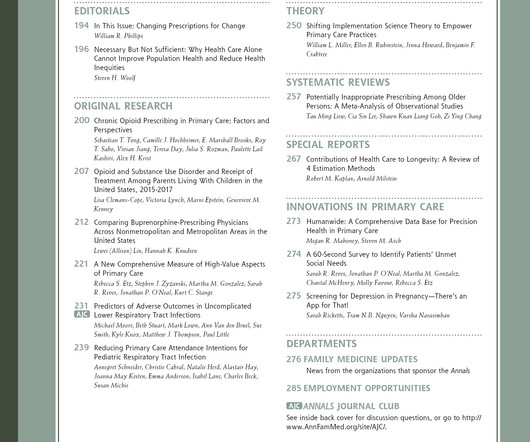The Role of Lifestyle Medicine in Reversing Early Chronic Disease
Edge Family Medicine
JANUARY 9, 2025
Chronic diseases such as type 2 diabetes, hypertension, and obesity can be effectively managed—and even reversed—through the six pillars of lifestyle medicine: nutrition, physical activity, restorative sleep, stress management, social connection, and avoidance of harmful substances.

















Let's personalize your content